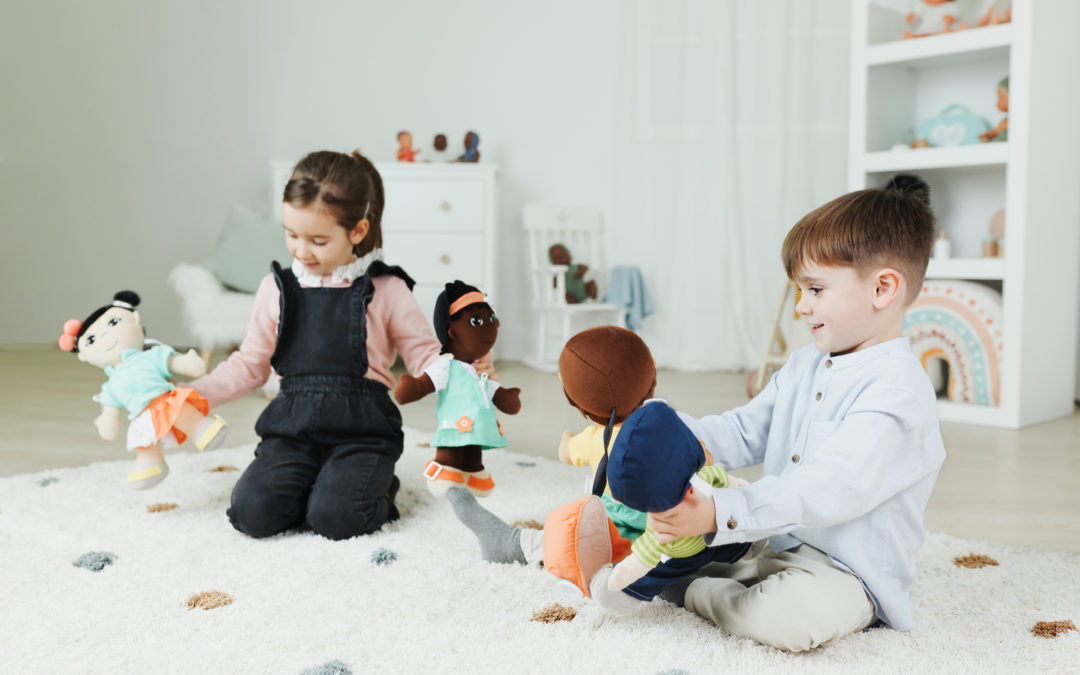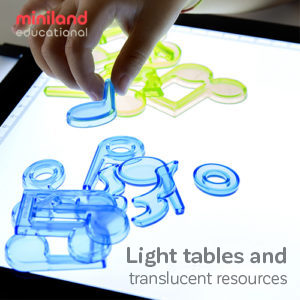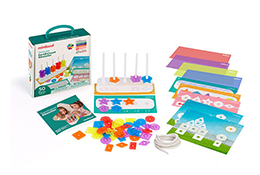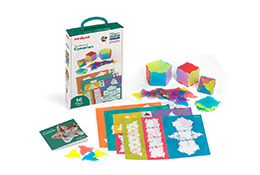Tips to promote kindness and respect
“Kindness matters.”
We hear that phrase pretty often, but how often do we actually put it into practice without thinking about it? How often do we lend a helping hand, let someone with less items cut in line at the grocery store.
A recent video shared by the wonderfully positive account “GoodDogNews” Instagram account showed a social experiment conducted at the mall. A man (the actor) pretended to be scared to go down an escalator. The experiment was conducted to see how many people would ignore him and how many would try and help.
Initially, people passed by him, glanced at him, and kept going on their way.
But one man, a man with a wife, a small child and a baby in a stroller, stopped, turned and offered to hold the man’s hand down the escalator. What made this act even more special was the fact that the man’s child saw his father’s act of kindness so he also joined in and held the man’s hand to help him. He copied his father’s genuine act of kindness and learned a valuable lesson. The ability for the man to easily help someone else and to lead by example showed his children an enormous gift that they will take with them the rest of their lives.
As educators, as parents, as the adults in young children’s lives, you have the opportunity to lead by example.
On this Random Acts of Kindness Day, show the little ones in your lives how they too can change someone’s day or even their life by a small act of kindness that usually goes a very very long way. Not only does it help the recipient but it helps to shape the impressionable young minds looking up to you for guidance.
Here are 3 Tips and Activities to foster kindness and increase a positive attitude amongst your children, particularly during stressful events:
- Kindness Rocks: There are some great Rock Activity kits out there that started from the Kindness Rocks Project initiative, where people of all ages paint and write positive messages on rocks to gift to others or leave around their neighborhood for others to find. You don’t have to purchase a kit to do this activity. Finding some simple rocks around your neighborhood while out on a walk and providing some water-proof paint will do the trick. Encourage your child to paint using colors that reflect their moods. Have them gift the rocks to their siblings or parents, even their pets. Rocks are also a great activity to use during a scavenger hunt. Hide the rocks around the house and take turns going on a hunt.
- Give them Goals: You can give children as young as 3 a goal each week to be kind to someone else, and to themselves. Whether it’s helping another person carry something, saying please and thank you, telling another person they did a good job, all of these actions count as kindness towards others. It’s important you also stress kindness towards oneself. Encourage statements like “I’m really proud I did that” to help young children practice kindness towards themselves. Keep a running chart on the fridge to mark off when a child displays an act of kindness, and award them at the end of each week. In the classroom, you can keep a class Kindness Chart to share when a student does a random act of kindness during the school day. It can be anything from bringing a toy over to a child who is crying about missing their Mom or Dad after drop off, to offering the swing to another child during outdoor recess.
- Encouragement during play time: When playing a game in a group where children take turns, example: Miniland’s Emotions Detective or Doll Play, encourage children to practice patience and kindness by being supportive of one another. For example, encourage statements like: “Great job!” “You got that so fast!”. When the game is over, tell your children to shake hands and say “Great game” no matter who won or lost. During play time with various toys like dolls, encourage positive statements as they play. “I like the outfit you chose for that doll, it looks nice.”
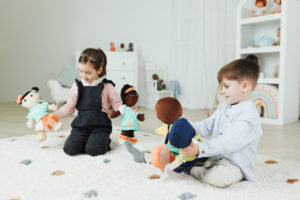
When these easy steps are implemented, kindness slowly becomes the norm. Through these simple tips, you can help your students and children to be kind to others, and to themselves, on a regular basis.
